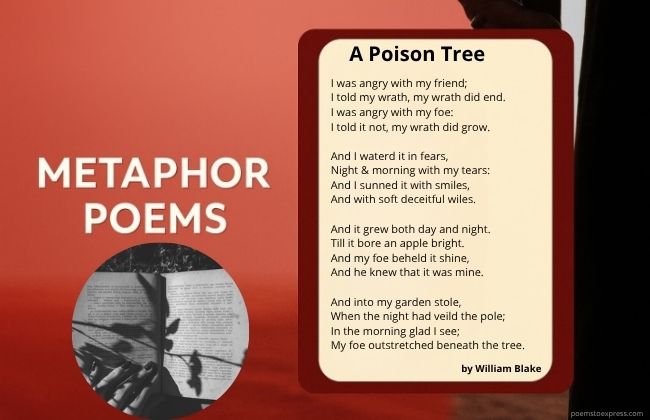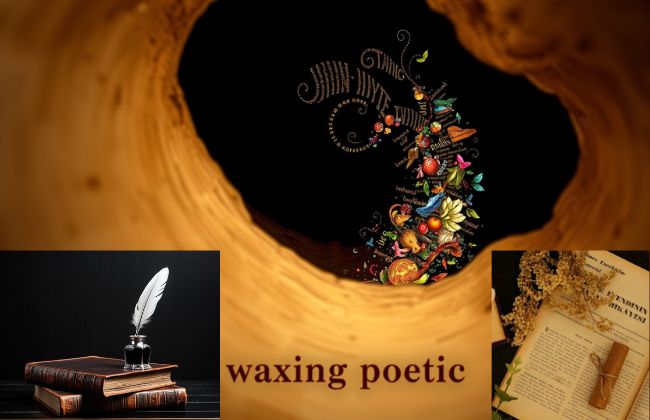Throughout history, poetry has served as a powerful vessel for expressing admiration, love, respect, and remembrance.
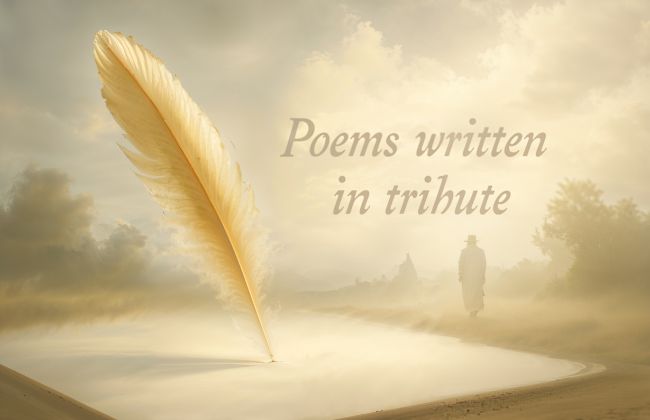
Poems written in tribute stand out as moving testaments, capturing the essence of individuals, events, or moments that have left a profound impact on our lives.
Whether honoring a loved one, commemorating a historical figure, or celebrating a remarkable achievement, tribute poems offer a unique blend of emotion and artistry. They allow us to share our deepest feelings, connect with others who have experienced similar emotions, and preserve memories in beautifully crafted words.
Tribute poetry not only immortalizes its subjects but also provides solace and inspiration to readers and listeners alike.
In this article, we’re sharing a collection of tribute poems that shine a light on the human experience, capturing beauty, sorrow, and everything in between. Each piece weaves a story of honor and remembrance.
Table of Contents
- 1 What is Tribute Poetry?
- 2 Purpose of Tribute Poetry
- 3 Famous poems written in tribute
- 3.1 “Ode to the West Wind” by Percy Bysshe Shelley
- 3.2 “In Flanders Fields” by John McCrae
- 3.3 “Do Not Go Gentle Into That Good Night” by Dylan Thomas
- 3.4 “Elegy Written in a Country Churchyard” by Thomas Gray
- 3.5 “The Raven” by Edgar Allan Poe
- 3.6 “I Hear America Singing” by Walt Whitman
- 3.7 “To An Athlete Dying Young” by A.E. Housman
- 3.8 “The Soldier” by Rupert Brooke
- 4 Types of Poems Written in Tribute
- 5 Elements and Structure of Tribute Poetry
What is Tribute Poetry?
Tribute poetry is a genre of poetry written to honor, celebrate, or memorialize a person, group, event, or concept. These poems express admiration, gratitude, or remembrance, often evoking deep emotional responses from both the writer and the reader.
Unlike other poetic forms that may focus on abstract themes or personal reflection, tribute poetry is inherently outward-focused, aiming to immortalize its subject through carefully crafted words.
Purpose of Tribute Poetry
Tribute poems serve multiple purposes, depending on the context and intent of the poet. The primary purposes include:
- Honoring and Celebrating: To recognize the achievements, character, or legacy of a person or group, such as a poem written for a retiring teacher or a national hero.
- Memorializing: To commemorate someone who has passed away, preserving their memory through verse, as seen in elegies or funeral tributes.
- Expressing Gratitude: To convey appreciation for someone’s influence or contributions, such as a poem dedicated to a mentor or parent.
- Inspiring Others: To share the subject’s story or qualities, motivating readers to emulate their virtues or reflect on their impact.
- Preserving Legacy: To document and pass down the significance of a person, event, or idea for future generations.
Famous poems written in tribute
“Ode to the West Wind” by Percy Bysshe Shelley
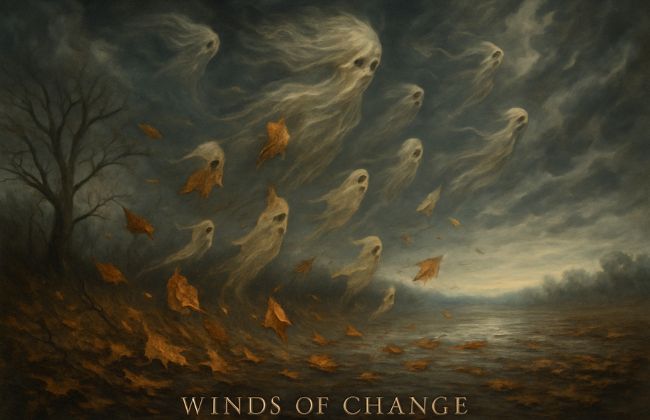
A tribute to the power of nature and the West Wind, symbolizing change and freedom.
I
O wild West Wind, thou breath of Autumn's being,
Thou, from whose unseen presence the leaves dead
Are driven, like ghosts from an enchanter fleeing,
Yellow, and black, and pale, and hectic red,
Pestilence-stricken multitudes: O thou,
Who chariotest to their dark wintry bed
The winged seeds, where they lie cold and low,
Each like a corpse within its grave, until
Thine azure sister of the Spring shall blow Se full poem
“In Flanders Fields” by John McCrae
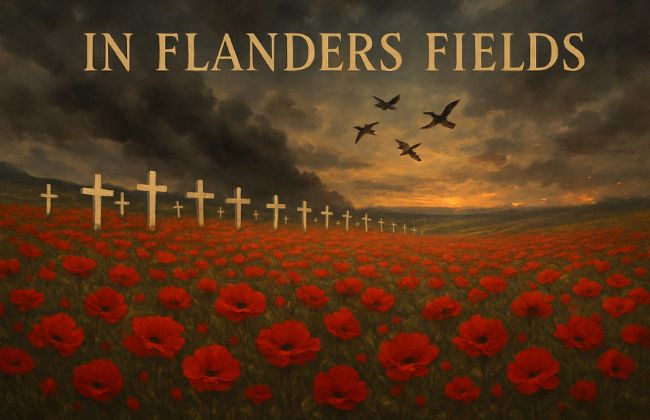
A poignant tribute to soldiers who died in World War I, set in the battlefields of Flanders.
In Flanders fields the poppies blow
Between the crosses, row on row,
That mark our place; and in the sky
The larks, still bravely singing, fly
Scarce heard amid the guns below.
We are the Dead. Short days ago
We lived, felt dawn, saw sunset glow,
Loved and were loved, and now we lie,
In Flanders fields.
Take up our quarrel with the foe:
To you from failing hands we throw
The torch; be yours to hold it high.
If ye break faith with us who die
We shall not sleep, though poppies grow
In Flanders fields.
“Do Not Go Gentle Into That Good Night” by Dylan Thomas
A passionate tribute to the fight against death, urging people to “rage, rage against the dying of the light.”
Do not go gentle into that good night,
Old age should burn and rave at close of day;
Rage, rage against the dying of the light.
Though wise men at their end know dark is right,
Because their words had forked no lightning they
Do not go gentle into that good night.
Good men, the last wave by, crying how bright
Their frail deeds might have danced in a green bay,
Rage, rage against the dying of the light.
Wild men who caught and sang the sun in flight,
And learn, too late, they grieved it on its way,
Do not go gentle into that good night.
Grave men, near death, who see with blinding sight
Blind eyes could blaze like meteors and be gay,
Rage, rage against the dying of the light.
And you, my father, there on the sad height,
Curse, bless, me now with your fierce tears, I pray.
Do not go gentle into that good night.
Rage, rage against the dying of the light.
“Elegy Written in a Country Churchyard” by Thomas Gray
A tribute to the lives of ordinary people who lived and died in a rural village, reflecting on mortality.
The curfew tolls the knell of parting day,
The lowing herd wind slowly o'er the lea,
The plowman homeward plods his weary way,
And leaves the world to darkness and to me.
Now fades the glimm'ring landscape on the sight,
And all the air a solemn stillness holds,
Save where the beetle wheels his droning flight,
And drowsy tinklings lull the distant folds;
Save that from yonder ivy-mantled tow'r
The moping owl does to the moon complain
Of such, as wand'ring near her secret bow'r,
Molest her ancient solitary reign. Se full poem
“The Raven” by Edgar Allan Poe
A tribute to loss and mourning, symbolized by the mysterious raven, as it explores grief and longing.
Once upon a midnight dreary, while I pondered, weak and weary,
Over many a quaint and curious volume of forgotten lore—
While I nodded, nearly napping, suddenly there came a tapping,
As of some one gently rapping, rapping at my chamber door.
“’Tis some visitor,” I muttered, “tapping at my chamber door—
Only this and nothing more.”
Ah, distinctly I remember it was in the bleak December;
And each separate dying ember wrought its ghost upon the floor.
Eagerly I wished the morrow;—vainly I had sought to borrow
From my books surcease of sorrow—sorrow for the lost Lenore—
For the rare and radiant maiden whom the angels name Lenore—
Nameless here for evermore. Se full poem
“I Hear America Singing” by Walt Whitman
A tribute to the diverse workers of America, celebrating their individual contributions to society.
I hear America singing, the varied carols I hear,
Those of mechanics, each one singing his as it should be blithe and strong,
The carpenter singing his as he measures his plank or beam,
The mason singing his as he makes ready for work, or leaves off work,
The boatman singing what belongs to him in his boat, the deckhand singing on the steamboat deck,
The shoemaker singing as he sits on his bench, the hatter singing as he stands,
The wood-cutter’s song, the ploughboy’s on his way in the morning, or at noon intermission or at sundown,
The delicious singing of the mother, or of the young wife at work, or of the girl sewing or washing,
Each singing what belongs to him or her and to none else,
The day what belongs to the day—at night the party of young fellows, robust, friendly,
Singing with open mouths their strong melodious songs.
“To An Athlete Dying Young” by A.E. Housman
A tribute to a young athlete whose life was cut short, reflecting on the fleeting nature of fame and youth.
The time you won your town the race
We chaired you through the market-place;
Man and boy stood cheering by,
And home we brought you shoulder-high.
Today, the road all runners come,
Shoulder-high we bring you home,
And set you at your threshold down,
Townsman of a stiller town.
Smart lad, to slip betimes away
From fields where glory does not stay,
And early though the laurel grows
It withers quicker than the rose. Se full poem
“The Soldier” by Rupert Brooke
A tribute to soldiers who gave their lives in World War I, celebrating the honor and sacrifice of those who fought.
If I should die, think only this of me:
That there's some corner of a foreign field
That is for ever England. There shall be
In that rich earth a richer dust concealed;
A dust whom England bore, shaped, made aware,
Gave, once, her flowers to love, her ways to roam,
A body of England's, breathing English air,
Washed by the rivers, blest by suns of home.
And think, this heart, all evil shed away,
A pulse in the eternal mind, no less
Gives somewhere back the thoughts by England given;
Her sights and sounds; dreams happy as her day;
And laughter, learnt of friends; and gentleness,
In hearts at peace, under an English heaven.
Types of Poems Written in Tribute
Tribute poetry encompasses various poetic forms, each with distinct characteristics suited to different tones and purposes.
Below are the most common types of tribute poems:
1. Ode
- Definition: A lyrical poem that expresses deep admiration or reverence for its subject, often with a formal tone and structure.
- Characteristics: Odes are typically elaborate, with elevated language and a structured stanzaic form, such as the Pindaric, Horatian, or irregular ode.
- Example: John Keats’ Ode to a Nightingale pays tribute to the beauty and transcendence of the nightingale’s song, though odes can also honor people, like Pablo Neruda’s odes to everyday figures.
- Purpose: To exalt the subject, celebrating their grandeur or significance.
2. Elegy
- Definition: A mournful poem written to lament the death of a person or group, often reflecting on loss and mortality.
- Characteristics: Elegies are somber, with a reflective tone, and may follow a traditional three-part structure: lament, praise, and consolation.
- Example: W.H. Auden’s In Memory of W.B. Yeats honors the poet’s life and legacy while mourning his passing.
- Purpose: To grieve and commemorate the deceased while offering solace to the living.
3. Dedication Poem
- Definition: A poem written to dedicate a work or express admiration for a specific person, often included as a preface or epigraph in a book.
- Characteristics: These poems are personal and direct, addressing the subject by name and focusing on their influence or inspiration.
- Example: Robert Frost’s dedication of North of Boston to his wife, Elinor, expresses gratitude for her support.
- Purpose: To publicly acknowledge and thank the subject for their role in the poet’s life or work.
4. Epigraph Poem
- Definition: A short poem or poetic excerpt used as an inscription or quotation to introduce a work, often honoring a person or theme.
- Characteristics: Epigraphs are concise, evocative, and contextually relevant to the work they precede.
- Example: T.S. Eliot’s use of a Dante quote as an epigraph in The Love Song of J. Alfred Prufrock sets a reflective tone.
- Purpose: To pay tribute indirectly by connecting the subject to the broader themes of the work.
5. Occasional Poem
- Definition: A poem written for a specific event or occasion, such as a wedding, funeral, or public commemoration, often honoring a person or moment.
- Characteristics: These poems are tailored to the event, with a tone that matches the mood (e.g., celebratory for a wedding, solemn for a funeral).
- Example: Maya Angelou’s On the Pulse of Morning, written for President Bill Clinton’s inauguration, celebrates unity and hope.
- Purpose: To mark a significant moment while honoring its participants or meaning.
Comparison Table: Types of Tribute Poems
| Type | Tone | Structure | Purpose | Example |
| Ode | Exalted, lyrical | Formal, stanzaic | Celebrate or admire | Ode to a Nightingale (Keats) |
| Elegy | Mournful | Reflective, three-part | Lament and commemorate | In Memory of W.B. Yeats (Auden) |
| Dedication Poem | Personal | Free or formal | Express gratitude or admiration | Frost’s dedication to Elinor |
| Epigraph Poem | Concise | Short, quotable | Set tone or honor indirectly | Dante quote in Eliot’s Prufrock |
| Occasional Poem | Event-specific | Varies by occasion | Mark and honor a moment | On the Pulse of Morning (Angelou) |
Elements and Structure of Tribute Poetry
Tribute poetry, while diverse in form, shares common elements and structural features that enhance its emotional and artistic impact.
Below, we explore the key components and how they are organized.
Key Elements of Tribute Poetry
1. Subject Focus
- The poem centers on a specific person, group, event, or idea, with clear references to their identity or significance.
- Example: A poem about a historical figure might mention their name, deeds, or legacy explicitly.
2. Emotional Tone
- The tone varies based on the purpose (e.g., celebratory, mournful, reverent) but is always emotionally resonant.
- Example: An elegy may convey sorrow, while an ode might express awe.
3. Imagery and Symbolism
- Vivid imagery and symbolic language paint a picture of the subject, making their qualities or impact tangible.
- Example: A poem honoring a soldier might use imagery of battlefields or symbols like a flag.
4. Personal or Universal Connection
- The poem connects the subject to the poet’s personal experience or to universal human themes, such as love, loss, or heroism.
- Example: A tribute to a parent might blend personal memories with universal themes of sacrifice.
5. Rhythmic and Sound Devices
- Poetic devices like rhyme, meter, alliteration, and assonance enhance the musicality and memorability of the poem.
- Example: A dedication poem might use a consistent rhyme scheme to create a lyrical flow.
Structure of Tribute Poetry
The structure of tribute poems varies by type, but most follow a logical progression to convey their message effectively. Below is a general framework, with variations noted for specific forms:
Introduction
- Establishes the subject and purpose of the poem, often with a direct address or vivid description.
- Example: In an ode, the poet might invoke the subject with grandiose language.
- Variation: Elegies begin with a lament, expressing grief or loss.
Development
- Explores the subject’s qualities, achievements, or impact through detailed imagery, anecdotes, or reflections.
- Example: A dedication poem might recount specific moments of the subject’s influence.
- Variation: Occasional poems tie the subject to the event’s context, such as a wedding’s joy.
Conclusion
- Offers resolution, whether through celebration, consolation, or a call to remember the subject’s legacy.
- Example: An elegy might end with acceptance or hope, while an ode might reaffirm the subject’s greatness.
- Variation: Epigraphs are brief and may lack a formal conclusion, serving as an evocative opener.
You might also like:

